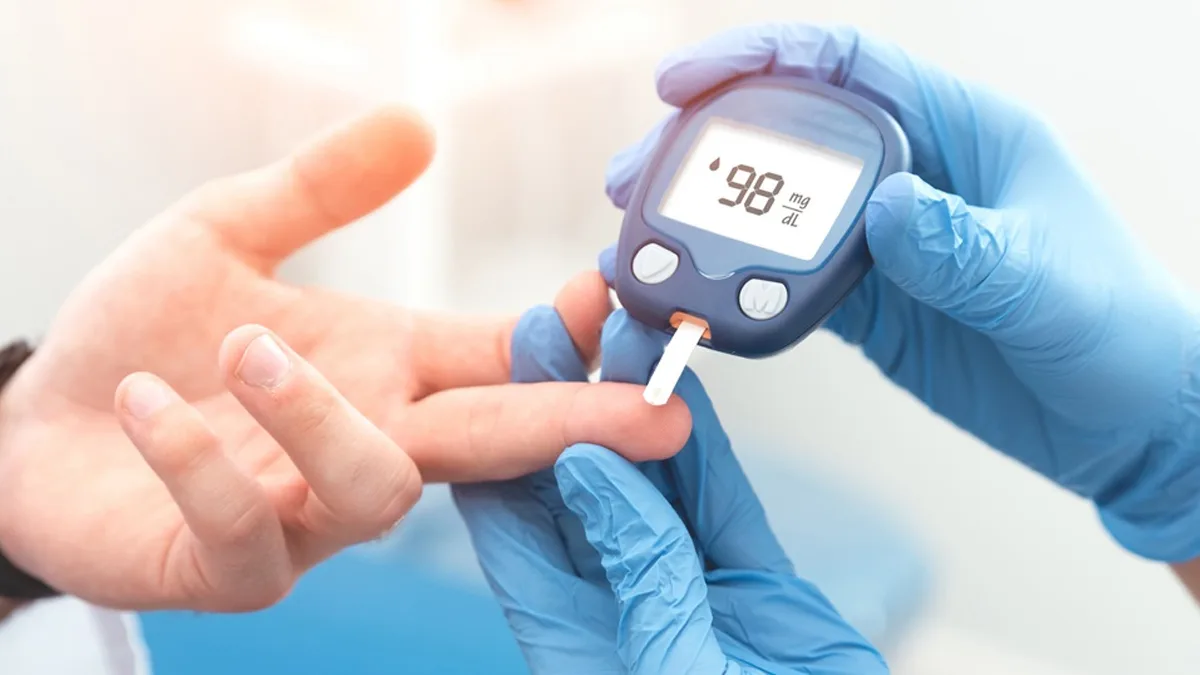As of 2021, an estimated 537 million people had diabetes worldwide accounting for 10.5% of the adult population with type 2 Diabetes making up 90% of cases. It’s estimated by 2045 approximately 783 million people or 1 in 8 will be living with diabetes representing a 46% increase from the current figures. The prevalence of the disease continues to increase most dramatically in low and middle-level income nations. Rates are similar in women and men with diabetes being 7th leading cause of death globally. The global expenditure on diabetes-related healthcare is an estimated USD 760 billion a year!
Type 2 Diabetes is caused by insulin resistance which may be combined with relatively reduced insulin secretion. The defective responsiveness of body tissues to insulin is believed to involve the insulin receptor. Many people with Type 2 Diabetes have evidence of pre-diabetes (impaired fasting glucose and/or impaired glucose tolerance) before meeting the criteria for type 2 Diabetes. The progression of prediabetes to overt Type 2 diabetes can be slowed or reversed by lifestyle changes or medications that improve insulin sensitivity or reduce the livers glucose production.
Interesting Case Study
I would like to share an interesting case study that shall reveal the potential newer anti-diabetes molecules. A few years ago, an Indian woman from Kuwait consulted me at my hospital in Kochi, India. She was on 100 units of insulin (older version) and older hypoglycemic drugs. She had an HBA1c of about 9.9 with fasting glucose close to 200 and post prandial sugars of more than 350 mg/dl. Her BMI was close to 32 (grade 2 obesity). She was depressed that inspite of taking so much insulin she still had uncontrolled diabetes and obesity.
In the new 2023 ADA guideline lot of emphasis has been placed on using new molecules like incretins and SGLT2 inhibitors to reduce obesity reduce cardiovascular complications and delay diabetes kidney disease progression. Insulin causes weight gain and when one is obese there is bound to be insulin resistance so injecting more insulin may not necessarily reduce sugars and is likely to cause more weight gain worsening the insulin resistance.
I counseled the lady that we needed to use a newer form of insulin-like degludac which had a half-life of more than 48 hours so in essence we could reduce the amount of insulin used though it was a more expensive insulin (now widely used). She agreed and I reduced it to 50 units of degludac as part of co formulation insulin a reduction of 50 units insulin.
Dr Joseph K Joseph MD

Second, I explained to her the importance of using a GLP 1 agonist like once weekly dulaglutide that would decrease her appetite and reduce post prandial sugars and make her lose weight. She agreed though it was expensive, and it had transient side effects like nausea and vomiting. However, it had long-term protective effects on cardiovascular health. The last molecule I educated her on was the sglt2 inhibitors (dapagliflozin) which had multiple additive effects like sugar control, weight reduction, increased improvement of heart pumping and delaying diabetic kidney progression by decreasing glucose reabsorption at the proximal tubule of kidneys and increasing glucose secretion through urine. I of course stopped the use of DPP4 inhibitors in this patient. Only the sulfonyurea and metformin were retained.
Success of Innovator Molecules
Within a month she came back for review. Her FBS had come down to less than 120 mg/dl, Her PPBS was now less than 160 mg/dl, her weight reduction close to 5 kg and HBA1c was brought down to 7.2!! She was really surprised with the results. She enquired with me how these new molecules were not used before on her? I explained to her these were all new latest molecules and that it was not possible for insurance companies or respective governments to give it free of cost as it was all innovator molecules by MNC companies, and they had intellectual property rights.
The patient was grateful and she gave good word of mouth to her friends and relatives about her treatment. I later strove to spread my clinical knowledge to my junior colleagues and doctors in rural areas via articles in newspapers and magazines. Also, i gave lectures in rural areas and scientific meetings to elucidate the audience on the importance of using newer molecules in obese diabetes cases and also those with higher ASCVD risk score variables.
My exploits during the past 5 years in modern therapeutics in Diabetes led me to being awarded the best diabetologist (national level) at the 2022 Economic Times Healthcare Awards 2022 and I was also a finalist at the 2018 BMJ South Asia Awards for healthcare innovation of the year. Presently I am involved in the use of incretin therapies for those with an HBA1C of more than 7 with BMI above 28 and Fasting glucose of more than 120 mg/dl. This is to reduce weight and prevent future cardiovascular complications.
Also read:Treating Achilles in Athletes
I am excited about once weekly insulin to be launched next year by Novo Nordisk which could be the next game changer in the management of Type 2 Diabetes after incretins. With the advent of semaglutide and Tirzepatide diabetes patients have lost up to 22 kg thus lowering the demand for even weight loss surgery in some cases. But I would like to end the article by saying incretins must not be misused. An Australian woman recently lost her life trying to lose a few kilos for her daughter’s wedding by using incretins. Sadly she developed complications and died of septic shock due to intestinal obstruction. So any good thing is a good thing only if it is responsibly and scientifically used.




















